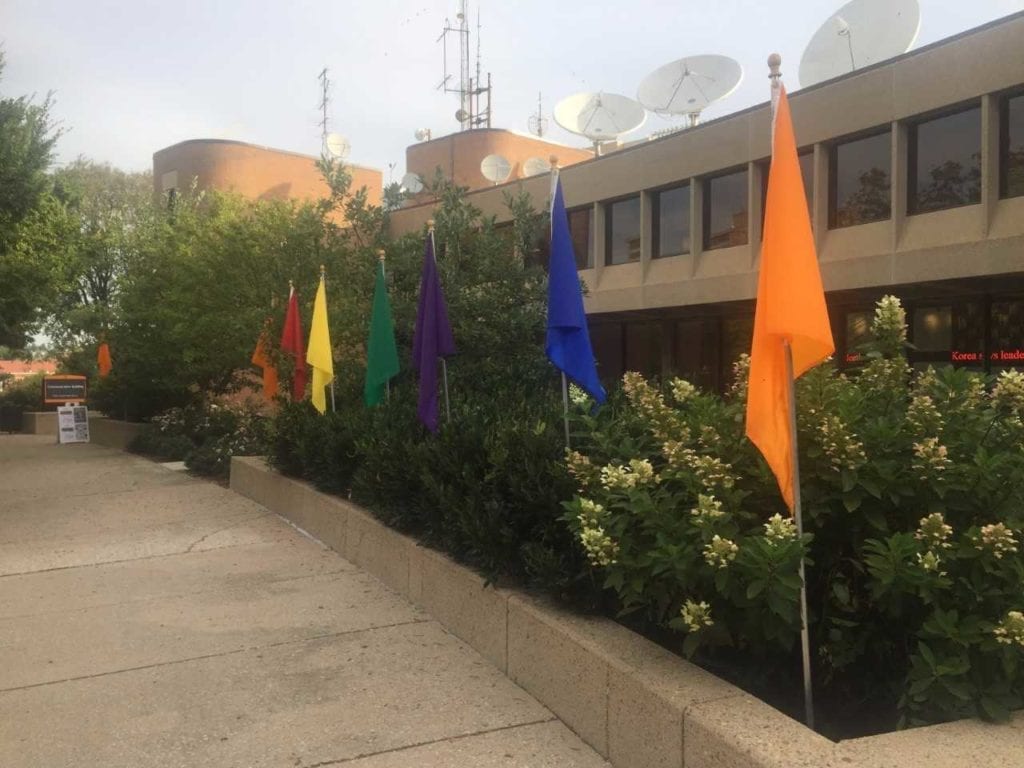Psychologist opens Diversity & Inclusion Week, discusses media effects on mental health
Dr. Erik Fisher opened Diversity and Inclusion Week with a presentation on the way our media usage affects our mental well being.

Credit: Sophie Grosserode
Diversity and Inclusion Week kicked off Monday morning with a presentation on the multitude of ways media affects our culture’s mental health.
Dr. Erik Fisher, an Atlanta-based psychologist and media analyst, discussed the problems he sees social media creating for our culture.
The first is the rise in Attention Deficit Disorder (ADD)-like symptoms being over diagnosed as ADD itself.
“We are training a culture of inattentive people,” Fisher said.
He described the constant exposure to audio and visual stimulation that Americans today experience, which, according to psychologists, changes brain development.
“Depression is showing an increase, but we have to look at our over diagnosis,” Fisher said.
According to Fisher, society is seeing an increase in antidepressant prescriptions because we have forgotten how to talk through our emotions.
“We get into our phones and we get into our media. Why?” Fisher asked. “To avoid. To avoid dealing with this world. This world’s tough.”
This can affect our ability to do simple things, like make eye contact, and to have complex conversations about the way we feel.
“Why are we having this epidemic – some are calling it an epidemic – of anxiety? Of depression?” Fisher asked again. “Because we’re not connecting.”
To avoid this lack of connection, Fisher stressed the importance of parents teaching young children to understand their emotions.
“We don’t have a crisis in diagnosis, we have a crisis in understanding emotion,” Fisher said.
Fisher also spoke on the popular and controversial Netflix original, 13 Reasons Why, which has been accused of encouraging negative mental health effects.
Fisher said he would not want anyone under the age of 18 watching the show without a parent there, watching and talking through it with them.
“Did it glorify suicide?…I believe it did,” Fisher said.
According to Fisher, the problem of media broadcasting everything from teen suicide to ISIS beheadings is that we “form our language of the world” by what we see and hear.
“And once you take the wrapper off something, you can’t put it back in,” Fisher said.
Embracing our culture’s failures is the best way Fisher described to address them. He encouraged the students in the room to seek truth and integrity in their lives.
Above all, he reminded those present to live in the world and connect with people.
“My biggest advice is self-discipline, that we still live in the physical world. We have to learn to manage that physical world,” Fisher said.
“We are broken,” Fisher said of the culture American media has helped created. But he was adamant that we can fix ourselves.
Vicki, a third-year student who attended the talk with her public speaking class, was interested to learn the multifaceted reasons behind the problems American society is experiencing.
“There are multiple causes to the divide we have here in Western culture,” she said. “It was really interesting, learning that.”
Edited by Kaitlin Flippo
Featured Image by Sophie Grosserode

